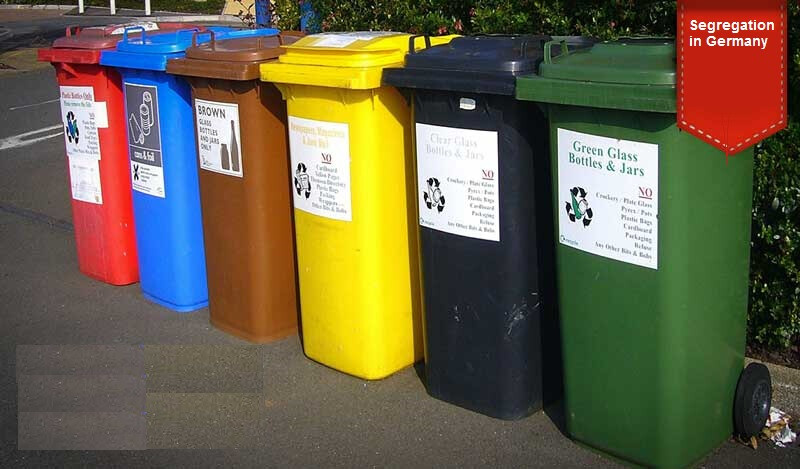
While South Korea grapples with increasingly granular recycling separation methods, a contrasting trend is gaining momentum in several leading European nations: simplification. The focus abroad is shifting towards making recycling more intuitive for consumers, acknowledging the complexities posed by detailed material-based classifications like ‘PP (polypropylene)’ and ‘PET (polyethylene terephthalate)’ often found on packaging in South Korea.
The United Kingdom pioneered this approach in 2009 with the introduction of the On-Pack Recycling Label (OPRL) scheme. This system streamlines the recycling process at the consumer level by clearly indicating whether an item’s packaging is recyclable or not. A green ‘Recycle’ label signifies recyclability, while a black or gray ‘Don’t Recycle’ label denotes non-recyclable materials. These labels are mandated to be printed on packaging during the production phase, empowering consumers to make quick and informed decisions about waste disposal. The collected waste, regardless of specific plastic type, is then managed and further sorted by local authorities at specialized sorting facilities, leveraging advanced technologies to handle the more intricate material separation.
Norway has adopted an even more user-friendly approach with its Color-Coded Bag System (OSLO). This innovative system eliminates the need for residents to meticulously sort waste by material type. Instead, households are provided with different colored bags for various waste streams: green for food waste, blue for plastics, and standard bags for general refuse. Once collected, the blue bags containing mixed plastics are transported to advanced sorting plants where sophisticated optical recognition technology and other automated processes efficiently separate the different types of plastics for recycling. This system significantly reduces the burden on individual households and promotes higher participation rates in recycling programs.
Germany, renowned for its stringent waste management practices, has also embraced the simplification trend through a nationally standardized color-coded bin system. This intuitive system assigns specific colors to different waste categories, making it immediately clear to citizens where each type of waste belongs. Yellow bins are designated for lightweight packaging (plastics, metals, composites), blue bins for paper and cardboard, brown bins for organic waste (food and garden waste), green bins for clear glass, white bins for colored glass, and black or gray bins for residual waste (non-recyclable items). This broad categorization allows for efficient initial sorting by residents, with subsequent detailed processing occurring at highly sophisticated recycling and treatment facilities. The national standardization ensures consistency across different regions, further simplifying the process for citizens.
Even in Japan, where recycling practices can vary significantly between major cities with detailed schedules for specific item collection, the underlying principle for consumers remains simplicity. While local governments provide comprehensive calendars and manuals outlining collection days and times for various items, the act of initial separation is designed to be straightforward. The emphasis is on creating a system that requires minimal prior knowledge, allowing for intuitive identification of recyclable materials. This often involves broader categories for collection, with advanced sorting technologies handling the finer distinctions downstream.
The global shift towards simplified recycling systems is driven by several key factors. Firstly, it aims to increase public participation by making the process less confusing and time-consuming. When recycling becomes easier, more people are likely to engage consistently. Secondly, it seeks to reduce contamination in recyclable waste streams. Overly complex sorting instructions can lead to errors, resulting in contaminated batches that are more difficult and costly to process. Simplified systems with clear, broad categories minimize these errors. Thirdly, advancements in sorting and processing technologies at recycling facilities now allow for more efficient and accurate separation of mixed recyclables, reducing the need for meticulous pre-sorting by consumers.
The success of these simplified systems in countries like the UK, Norway, and Germany offers valuable lessons for nations like South Korea that are currently grappling with increasingly complex recycling regulations. While detailed material-based sorting might seem environmentally responsible in theory, it can often lead to confusion, lower participation rates, and higher contamination levels in practice. By adopting a more user-centric approach that prioritizes clarity and simplicity at the household level, countries can potentially achieve higher recycling rates and more efficient resource management. Investing in advanced sorting infrastructure to handle the more granular separation of materials collected through simplified systems is crucial for maximizing the effectiveness of this approach. The experiences of these leading nations demonstrate that a focus on intuitive, color-coded systems can be a more effective pathway towards a truly circular economy.
[Copyright (c) Global Economic Times. All Rights Reserved.]



























